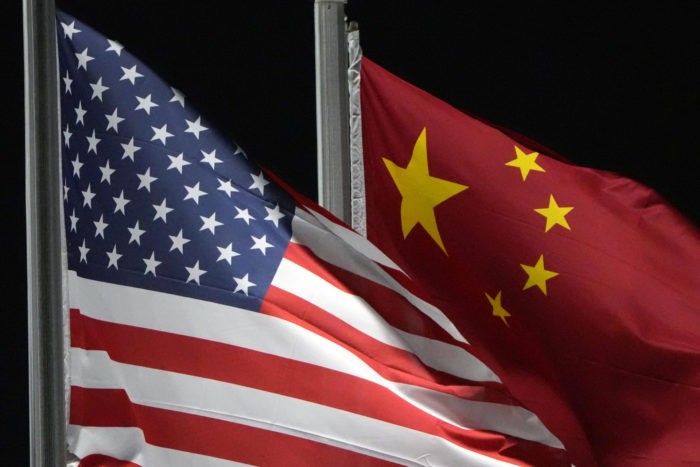(José Niño, Headline USA) A North Carolina congressman wants to stop Chinese state-owned companies from running retail outlets on American military installations.
Rep. Pat Harrigan, R-NC, introduced the Military Installation Retail Security Act on Thursday to address what he believes is a significant national security flaw.
At the center of Rep. Harrigan’s concerns is GNC, a well-known nutritional supplement retailer operating on U.S. military bases.
According to Harrigan’s press release, GNC is “100% owned by China’s state-run Harbin Pharmaceutical Group” and currently maintains over 80 stores on American military installations through long-term contracts with military exchanges like AAFES (Army & Air Force Exchange Service), NEXCOM, and MCX.
These retail agreements reportedly operate with exemptions from standard federal contracting mandates and ownership disclosure regulations.
The Army & Air Force Exchange Service (AAFES), also known as “The Exchange,” is the Department of Defense’s largest exchange service and operates thousands of facilities worldwide, providing goods and services at U.S. Army, Air Force, and Space Force facilities.
In essence, this widespread presence means that foreign-owned retailers operating through AAFES have significant access to military communities.
Rep. Harrigan’s main concern deals with data collection and potential intelligence risks. Per his statement, these Chinese-owned stores are “in a position to collect personal data from our troops, operate with almost no oversight, and answer directly to a hostile foreign government.”
This aligns with broader concerns about the Chinese Communist Party data collection practices targeting Americans.
Security experts believe such data could be exploited in multiple ways.
For example, Chinese intelligence services could potentially use the information they collected to identify, target, and recruit U.S. informants. In a similar vein, personal data could also be used for blackmail, propaganda targeting, corporate espionage, or identity fraud.
Harrigan’s bill would do the following:
- Prohibit companies owned or controlled by China, Russia, Iran, or North Korea from operating physical storefronts on U.S. military facilities
- Terminate existing contracts with companies that misrepresented foreign ownership
- Require national security reviews of existing on-base retailers with foreign connections
- Implement transparency and oversight requirements for future retail agreements on military bases.
This legislation comes against the backdrop of increased U.S. scrutiny of Chinese involvement near military facilities.
In recent years, federal attention has focused on Chinese land purchases close to military bases. In May 2024, President Biden issued an executive order shutting down MineOne Partners Ltd., a Chinese-owned firm operating near Warren Air Force Base in Wyoming.
Multiple states have enacted laws banning foreign adversaries from owning land close to military facilities.
The current focus on retail operations constitutes an expansion of these security concerns from surrounding areas to within the confines of bases themselves.
Harrigan’s statement emphasizes this shift in the United States‘ national security policy vis-a-vis China:
🚨 BREAKING: The Chinese Communist Party owns and operates more than 80 retail stores on U.S. military bases.
While everyone’s been focused on the CCP buying land AROUND sensitive military bases, the real threat is what’s already happening ON our military bases.
For years,… pic.twitter.com/SHiPLPucE4
— Congressman Pat Harrigan (@RepPatHarrigan) April 3, 2025
José Niño is the deputy editor of Headline USA. Follow him at x.com/JoseAlNino

